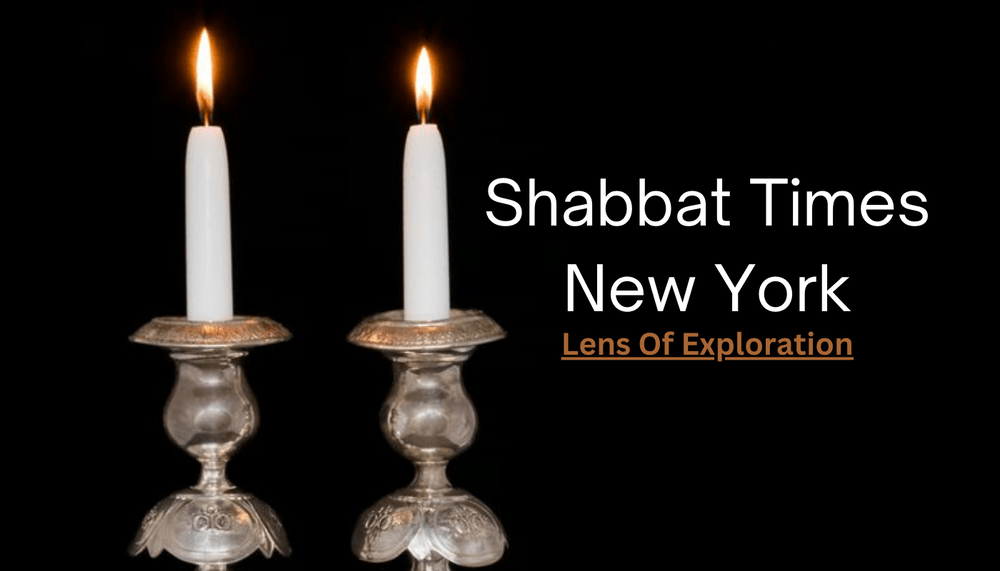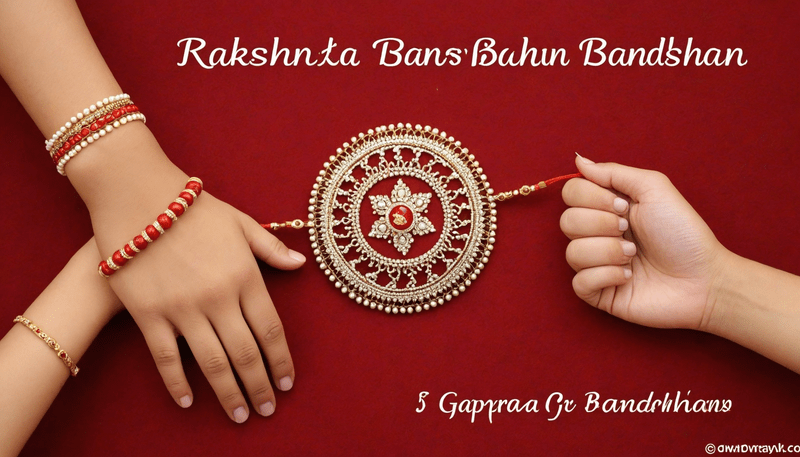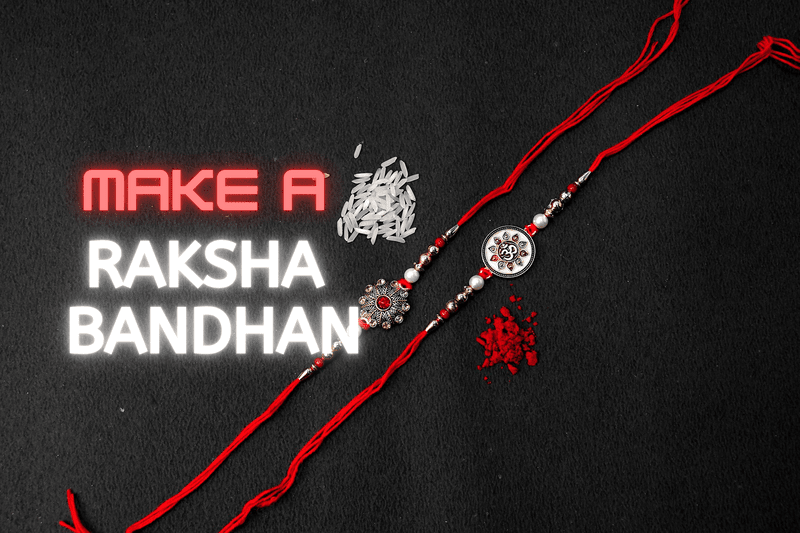Raksha Bandhan, one of India’s most cherished festivals, celebrates the deep and enduring bond between brothers and sisters. This festival, rich in tradition and sentiment, has been celebrated for centuries, weaving a tapestry of love, protection, and familial duty. In this article, we delve into the fascinating Raksha Bandhan Background, exploring its origins, significance, and the ways it is celebrated today.
The Origins of Raksha Bandhan
Raksha Bandhan, which translates to “the bond of protection,” has ancient roots in Indian mythology and history. The festival’s origins are intertwined with numerous legends and tales, each adding a layer of meaning and tradition to the celebration.
Mythological Raksha Bandhan Background
One of the most well-known legends associated with Raksha Bandhan is the story of Lord Krishna and Draupadi from the Mahabharata. According to the tale, when Krishna injured his finger, Draupadi tore a piece of her sari to bandage his wound. Touched by her gesture, Krishna promised to protect her, symbolizing the essence of Raksha Bandhan—protection and care.
Another legend speaks of the bond between Yamuna, the river goddess, and her brother Yama, the god of death. Yamuna tied a sacred thread around Yama’s wrist, and in return, he granted her immortality. This story emphasizes the promise of protection and the undying bond between siblings.
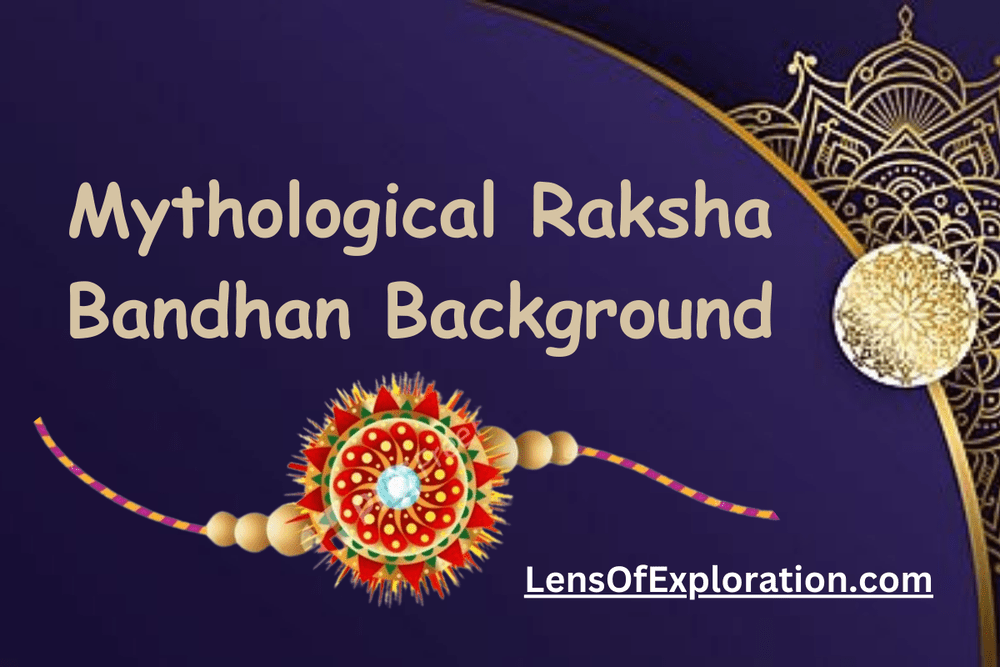
Raksha Bandhan Background in Historical Perspective
Raksha Bandhan also finds its roots in historical events. One famous account is the story of Rani Karnavati of Mewar and Emperor Humayun. Facing a threat from the Sultan of Gujarat, Rani Karnavati sent a rakhi to Humayun, seeking his protection. Moved by her plea, Humayun abandoned his military campaign and rushed to her aid, exemplifying the protective vow inherent in the festival.
Significance of Raksha Bandhan
The significance of Raksha Bandhan extends beyond the simple act of tying a thread. It embodies the deep-seated values of family, love, and duty.
Strengthening Family Bonds
Raksha Bandhan is a celebration of the unique relationship between siblings. It is a day when brothers and sisters come together, reaffirming their bond and expressing their love and gratitude. The ritual of tying the rakhi symbolizes the promise of protection and care that siblings share throughout their lives.
Cultural and Social Unity
Raksha Bandhan transcends religious and cultural boundaries, promoting social harmony and unity. While it is primarily a Hindu festival, people from various communities and regions participate in the celebrations, reflecting the inclusive spirit of Indian culture. Learn about Raksha Bandhan Quotes.
The Rituals and Celebrations of Raksha Bandhan
Raksha Bandhan is celebrated with great enthusiasm and joy across India and among Indian communities worldwide. The festivities are marked by several rituals and traditions that vary by region but share a common theme of love and protection.
Preparation and Shopping
The preparations for Raksha Bandhan begin well in advance. Markets are adorned with colorful rakhis, sweets, and gift items. Sisters carefully choose rakhis for their brothers, each thread symbolizing their love and prayers for their sibling’s well-being.
The Ceremony
On the day of Raksha Bandhan, families gather to perform the ceremonial rituals. The ceremony begins with an aarti, where sisters pray for their brothers’ prosperity and happiness. They then tie the rakhi around their brothers’ wrists, applying a tilak on their foreheads and feeding them sweets. In return, brothers give gifts to their sisters, promising to protect and support them. How to Make Rakha Bandhan.
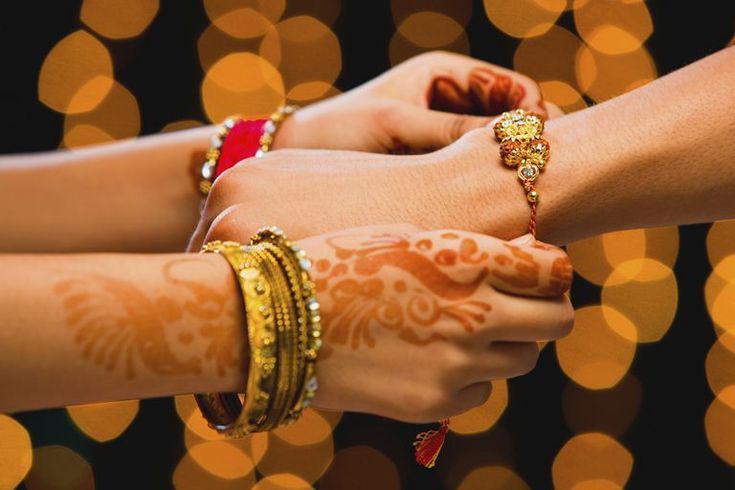
Regional Variations
While the essence of Raksha Bandhan remains the same, the celebrations vary across different regions of India. In Maharashtra, for instance, the festival coincides with Narali Purnima, where fishermen offer coconuts to the sea for a bountiful catch. In West Bengal and Odisha, it is celebrated as Jhulan Purnima, dedicated to Lord Krishna and Radha.
Modern-Day Celebrations and Raksha Bandhan Background
In today’s fast-paced world, the essence of Raksha Bandhan remains intact, though the ways of celebration have evolved. Many siblings who live far apart connect through virtual means, sending e-rakhis and gifts online. Despite the distance, the emotional bond remains strong, demonstrating the festival’s enduring relevance. Learn about Raksha Bandhan Budget.
Conclusion
Raksha Bandhan is more than just a festival; it is a celebration of the unbreakable bond between siblings, rooted in history, mythology, and cultural values. By understanding the background of Raksha Bandhan, we can appreciate the depth of its significance and the beauty of its traditions. As we celebrate this special day, let us remember the timeless promise of love, protection, and unity that Raksha Bandhan represents.

